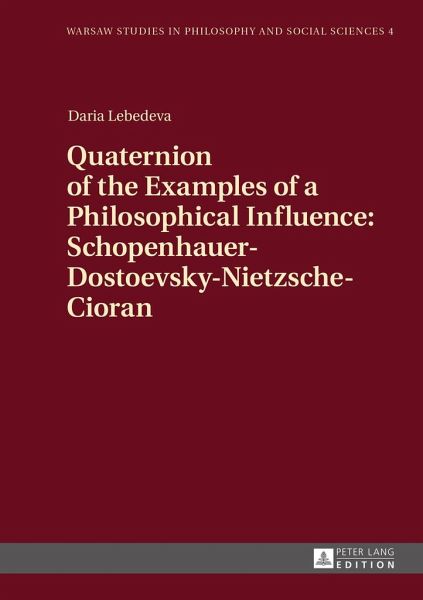
Quaternion of the Examples of a Philosophical Influence: Schopenhauer-Dostoevsky-Nietzsche-Cioran
Versandkostenfrei!
Versandfertig in 6-10 Tagen
51,15 €
inkl. MwSt.

PAYBACK Punkte
0 °P sammeln!
The philosophical influence is a concept, a methodological tool and a process worth inquiring, because it sets the frame for the philosopher's contribution into tradition. This study takes a close look at the philosophical influence on the dependence and inter-dependence between ideas and concepts, currents and tendencies and the experiences that every philosopher inherited from past tradition. It also presents four philosophers in order to identify the roots of influence: Arthur Schopenhauer, Fyodor Dostoevsky, Friedrich Nietzsche and Emil Cioran.














